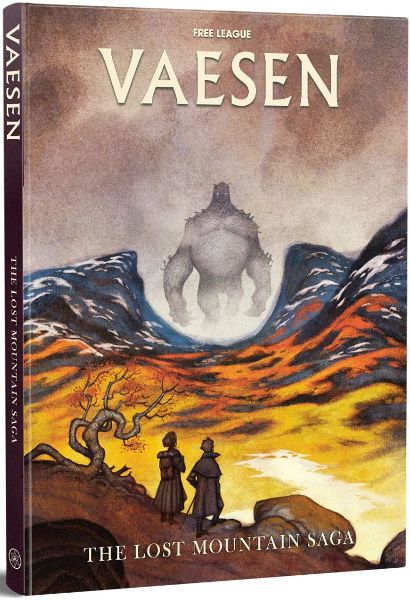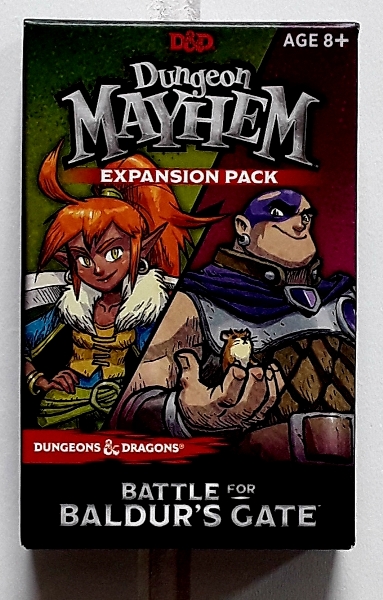
Mutant: Year Zero
Mutant: Year Zero is a dystopian post-apocalyptic role-playing game, written by Tomas Härenstam, Petter Bengtsson, Chris Birch, Anders Blixt, Thomas Johansson, Nils Karlen, Kosta Kostulas, and Chris Lites and published by Free League Publishing.
By Aaron T. Huss
Learn more about Mutant: Year Zero here
Purchase Mutant: Year Zero here (paid link)
Find other Mutant: Year Zero posts here
Mutant: Year Zero was first reviewed 9 years ago. This is is not an update but rather a review that approaches the RPG with a different set of eyes after consuming reviews of many products throughout those 9 years and builds upon the previous review. You can read that review here.
There are secrets wrapped up in secrets, and the GM knows it all… but the characters know nothing. I won’t attempt to rehash what I already reviewed the first time, but I do want to emphasize something. Since the first review, I have read, played, and reviewed a handful of post-apocalyptic and post-apocalyptic-leaning games plus watched and red post-apocalyptic media. Every one of them has a common thread – this is the new world you live in; it is a shell of its former self and there are threats everywhere. Some of them incorporate fantasy, some sci-fi, some make it seem like the characters have no idea what current technology is even used for. Mutant: Year Zero takes a different path.
Mutant: Year Zero takes a stance that – yeah, some really messed up stuff happened, the world is in shambles, but if you don’t figure out what lies at the root of it all, you’re going to die and so is everyone surrounding you. Thus “Roleplaying at the end of days”. This is not an RPG for those who like to play mutants in a war-torn Earth where they suddenly have magical abilities. This is an RPG for those who like to look beyond the surface, beyond the combat, beyond the “ooh look at this shiny thing that is actually a printer from 2020”. There’s no way to “fix the setting” such as many games do where there is this single big bad out to take over the world and you have to stop it. Instead, the setting doesn’t really care about you and is meant to hinder you. This is because the setting is the surface, and you need to dig real deep to find the light at the end of the tunnel. Thus I have rebranded it as “dystopian” because it’s not just post-apocalyptic hoorah; it’s post-apocalyptic “what are we going to do now”.
Knowing the essence of the game is crucial to understanding the mechanics as the mechanics embrace this expanded view of roleplaying (you know, instead of focusing on combat and skill challenges). Each character role has specialist skills that are the bread and butter of these mechanics. It’s not about killing or befriending everyone and everything because the world is black and white good vs. evil; it’s about interacting with everyone and everything you come into contact with to understand if they are helpful, useless, information necessary to unravel the truth, or a roadblock to overcome. It’s like a blend of storytelling and crunchy mechanics (characters have Talents which lean toward the crunchy side of gaming).
There’s another fun aspect of Mutant: Year Zero that I neglected to touch on before – dynamic world building (although “world” is the zone that includes sectors and The Ark – the place you call home – to create the overall map). The setting doesn’t have to be statically defined. I touched base on this a bit before while discussing moving around the grid, but ultimately what lies out there can be whatever it needs to be. If the PCs are getting close to a plot point, add it in the next sector they discover. Need a conflict? Have something appear in a previously explored sector. Is there a phenomena growing in strength? Have it creep closer and closer to the ark. When an entire game centers on a single location, everything around that location needs to be flexible enough to keep the storyline moving and bringing the group closer to that next milestone!
One important note for GMs… read the entire book and understand how it affects your game. There is a metaplot that runs throughout the RPG that can be ignored or constantly looming in the background. At some point, if you stick to the fluff, the PCs should make that incredible discovery that launches them into the next themes of the game. If you avoid the fluff, then you may just end up running a game that feels much like other post-apocalyptic games. In my opinion, it is the metaplot that makes Mutant: Year Zero truly unique and defines why it was designed the way it was designed.



